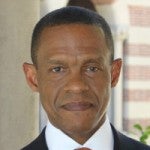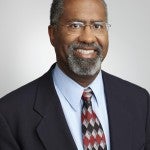SOURCE ALERT: Brussels: What does ISIS want?
At least 34 people were killed in terrorist bombings in Brussels. ISIS has claimed responsibility.
Contact: Emily Gersema at (213) 740-0252 or gersema@usc.edu; Andrew Good at (213) 740-8606 or gooda@usc.edu.
USC researchers worked with a team of international experts to conduct a text analysis to understand ISIS’s strategies. According to the study published recently in the journal Decision Analysis, USC researchers at the Center for Risk, Economic Analysis and Terrorism Events (CREATE) found through texts of interviews with ISIS members and ISIS speeches that the group has four primary strategies:
- Establish a caliphate in Iraq and “the Levant”
- Control and govern the Islamic State
- Recreate the “power and glory of Sunni Islam”
- Expand Islam and Sharia Law worldwide
They also found in their text analysis that two “means” objectives which support those four strategies include “kill, frighten and/or convert infidels”; and “generate revenue.”
At the same time, the researchers found that followers of ISIS (a.k.a. ISIL and Daesh) have three primary personal objectives — “humanitarian fulfillment, religious fulfillment and personal fulfillment.” Some goals within those personal objectives, such as gaining power and improving their material situation and self esteem, are at odds with the organization’s primary strategies, creating conflict within the organization.
“Observing shifts in these objectives and exploiting potential conflicts can provide insights for the development of counter terrorism strategies. If, for example, it were proven that ISIL leaders want to establish a regional caliphate as opposed to worldwide jihad, this would give weight to the argument that troops are needed on the ground to defeat them,” according to the research team.
The study was conducted by Richard S. John, an associate professor of psychology for the USC Dornsife College of Letters, Arts and Sciences and a research theme co-leader for risk perception and communication for USC’s CREATE; Detlof von Winterfeldt, a co-founder of USC’s CREATE who is a professor in the USC Viterbi School of Engineering and Price School of Public Policy; and lead author Johannes Siebert of University of Bayreuth, Germany.
___________________________________________________
Richard S. John is an expert in risk analysis and among several USC terrorism experts who are available for interviews about ISIS and terrorism events.
Contact: (213) 740-4011 or richardj@usc.edu or by contacting Stephen Gee, associate director of communication and outreach at USC CREATE at (213) 740-5514 or gees@price.usc.edu.
___________________________________________________

Erroll Southers is a counter-terrorism expert with the USC Center for Risk, Economic Analysis and Terrorism Events. He can comment on the motivations of groups like ISIS, the link between the Brussels attacks and the arrest of Salah Abdeslam, and what countries can do to protect themselves from further attacks.
Contact: (323) 816-8045 or southers@usc.edu.
___________________________________________________
Edwin Smith is an international law expert with the USC Gould School of Law. He can comment on how the Brussels attacks could impact policies affecting other international crises, such as the war in Syria and migration throughout Europe.
Contact: (310) 487-1814 or ripsmith@att.net.
___________________________________________________
Sherry Bebitch Jeffe is a politics expert with the USC Price School of Public Policy. She can discuss how the Brussels attacks could influence the U.S. presidential election, and especially the Donald Trump campaign.
Contact: (310) 641-7472 or sbjcgs@aol.com.





